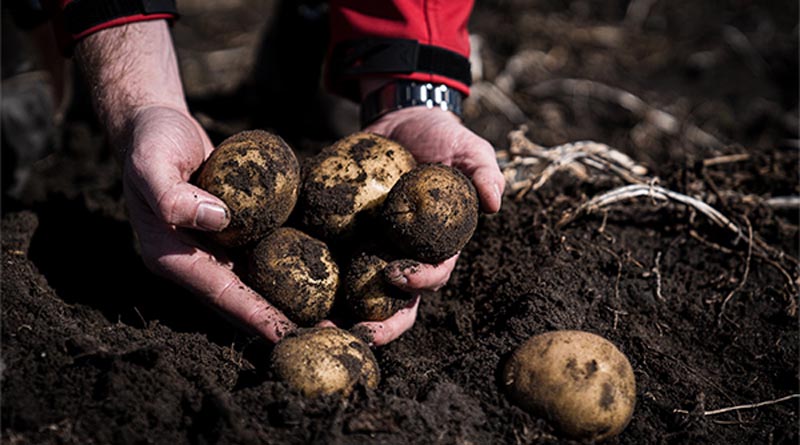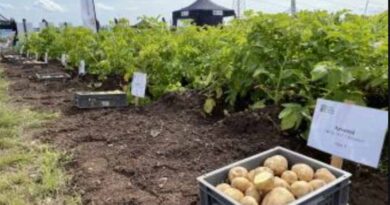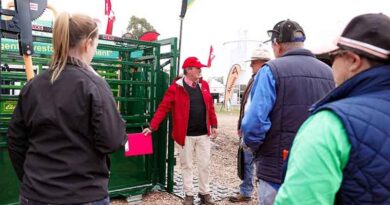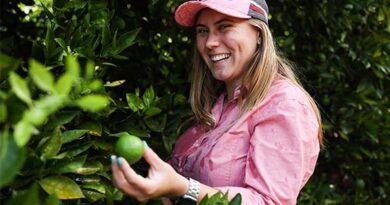Australia: Chipping in to serve up the latest in potato production
08 February 2024, Australia: The event was part of the Innovation at Work project, a strategic partnership between Elders and Hort Innovation which aims to bridge the gap between research and development outcomes and on-farm practice change. Attendees included potato growers, farm managers and employees, industry representatives, input suppliers, and staff from across the Elders business.
The first presentation was from Nigel Crump, on behalf of the Seed Potato Industry Certification Authority (AuSPICA). He provided an overview of the upcoming World Potato Congress which is taking place in Adelaide between 23 and 26 June 2024. The Congress will represent an opportunity for networking and knowledge sharing for anyone involved in the potato industry value chain.
The keynote speaker for the day was John Duff from the Queensland Government Department of Agriculture and Fisheries (QDAF). John shared his insights and practical experience with using Brassica cover crops as biofumigants to manage soilborne diseases in vegetable production.
John explained that Brassica species such as mustard, radish, and rocket are commonly used as cover crops for biofumigation, naturally producing chemicals called glucosinolates. When the cover crop is mulched into the soil, glucosinolates are released from the plant biomass. Upon the addition of water, glucosinolates are converted into isothiocyanates – gases that are toxic to soilborne diseases. Biofumigation can therefore provide growers with an option to control pests and pathogens without the use of synthetic chemicals.
“There are a large number of potential Brassica biofumigant varieties out there,” John said.
“It is important for growers to research which varieties may suit their region and needs. For example, are they only interested in biofumigation or should other benefits such as preventing erosion or increasing soil organic matter also be considered.”
John also emphasised the importance of good agronomic practices for achieving success with biofumigation.
“It needs to be treated like a cash crop, otherwise pest and disease issues can significantly reduce the ability of the plants to produce the glucosinolates that are required to fumigate the soil,” he said.
For more information about using Brassicas as biofumigants in vegetable production, refer to the Guide to Brassica Biofumigant Cover Crops which was funded by the Queensland Government and Hort Innovation.
Next on the agenda at the event was Trevor Dennis and Sherri Robinson from Haifa Group, who shared data from trials of their controlled release fertiliser products in potatoes. They encouraged growers to consider the environmental impact of their fertiliser practices, referencing the recent Fertilizer Australia white paper on Nitrogen Fertiliser Use and Greenhouse Gases. This was followed by a combined talk by Geoff Schaller from Arcoflex and Sharon Crane from Airiel Solutions, who gave attendees an update on a seed potato storage trial being run in collaboration with the Portland Cool Store and Elders Mt Gambier.
The final speaker was Abe Montano from Elders, who gave a presentation on HarvestEye. This is an AgTech device that can be attached to any harvester to collect information about root vegetable counts, sizes, and weights at harvest. It allows crop variability to be mapped across paddocks, providing growers with performance data that can be used to improve crop uniformity, yield, and production efficiency. Details about the partnership between Elders and HarvestEye are available in this article.
Elders Innovation Funding Manager Dr Carly Rosewarne is overseeing the Innovation at Work project. One of the next steps is to use feedback collected from event attendees to inform the co-design of an action learning activity. This will allow Elders agronomists and rural products staff to work alongside potato growers on farm to explore adoption of new products and management practices.
“The Potato Innovation Day enabled Elders to bring together a large and diverse group of stakeholders involved in potato production from across South Australia and Victoria,” Carly said.
“The event fostered some great discussions with growers about challenges, opportunities, and knowledge gaps. Through the project, we’re looking forward to using a collaborative approach to develop solutions that are tailored to their needs.”
Innovation at Work (LP20000) is funded through the Hort Frontiers strategic partnership initiative developed by Hort Innovation, with co-investment from Elders and contributions from the Australian Government.
Also Read: Best Agrolife to manufacture a combination of Trifloxystrobin, Thiamethoxam, and Thiophanate Methyl under the brand name Warden Extra
(For Latest Agriculture News & Updates, follow Krishak Jagat on Google News)















